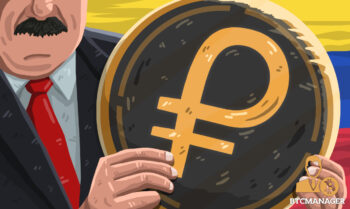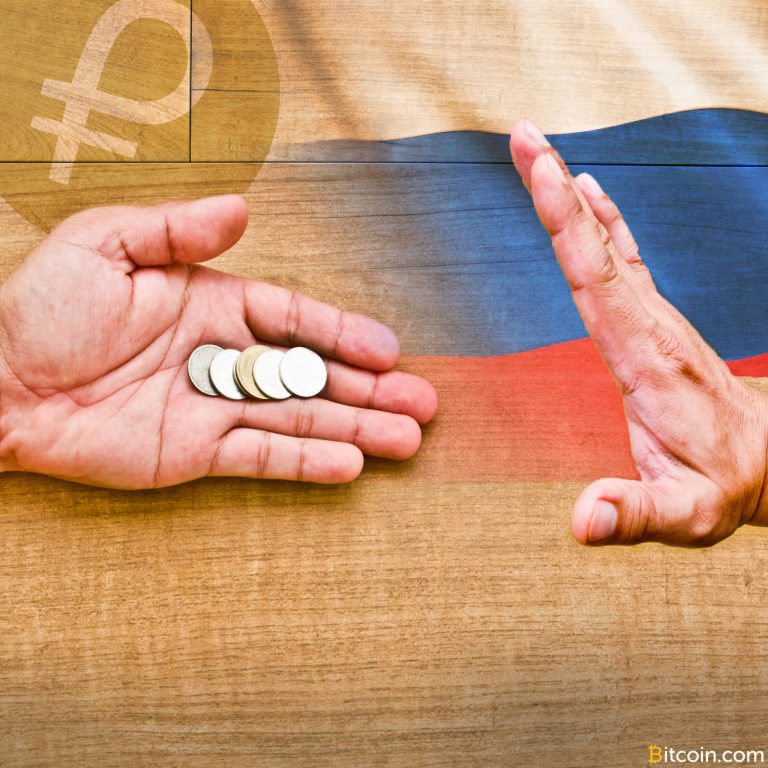2019-3-31 16:30 |
This is Part 1 of our article on Petro and Venezuela.
Episodes of wars and conflict have long been tools by which empires have risen and fallen. With the onset of the new age and the Industrial Revolution, a key component of what makes the world tick was revealed – money, or more specifically, the value of money. The importance of this essential cog was first revealed back in 1929 with the Great Depression, which destroyed communities and livelihoods, leaving millions unemployed and even more out on the streets.
In the ninety years since, some countries have witnessed scenarios being replicated to the point of crushing economic debt and hyperinflation that could statistically not be calculated [Eg. Zimbabwe]. Out of all those countries, one nation stands out as the victim of one of the world’s most brutal economic downfalls since the Great Depression: Venezuela.
A country that was previously known for its wonderous exports, is now in the midst of a civil war and increasing hyperinflation rates that threaten to tear the country apart. In this article, we will discuss Venezuela’s tragic backstory, the inception of Petro and the massive backlash it has received since then.
Venezuela’s story
After the death of Hugo Chavez and the rise of incumbent President Nicolas Maduro in 2013, Venezuela underwent a rapid shift in dynamics, be it on the political or economic front. Last year, it was reported that Venezuela’s inflation rates hit an all-time high of 80,000%, a figure that came to be because of the reversal of a lot of regulations put forth by Chavez, as well as reports of money laundering from within the country.
A key marker in Nicolas Maduro’s reign was formed in February 2018, when the Venezuelan government put forth the whitepaper for a state-backed cryptocurrency called Petro. It was launched at a time when the native Bolivar was falling to sickening lows and there was rampant unrest among the masses.
Petro
The introduction of a state-backed cryptocurrency was seen as a risky move in a country where the citizens were paying close to 500,000 Bolivars for a loaf of bread, but that didn’t stop Maduro’s government from listing out the details. To build the value of the cryptocurrency, the government allocated 5 billion barrels to it, a move immortalized by a lot of oil-rich nations.
Sources had claimed that the economy would recover because each Petro coin would be worth a barrel of oil, a sentiment drawn from Venezuela’s oil-rich history. The release was announced to the people by Maduro, who said,
“As of next Monday, Venezuela will have a second accounting unit based on the price, the value of the Petro. It will be a second accounting unit of the Republic and will begin operations as a mandatory accounting unit of our PDVSA oil industry.”
Another key player in the release of Petro was the Petroleos de Venezuela, the state-owned petroleum company marred by allegations of corruption, insider trading, and fraud. Since Maduro’s announcement, Petro and the country’s economy in general, have been on an accelerated downfall, punctuated by public outcries, sanctions against the government and a new interim president.
Issues
Before talking about Petro, one should look at the events that transpired in the world of cryptocurrencies at the time. The entire world was just coming out of the Bitcoin high where the world’s largest cryptocurrency rocketed to trade at $19,500, which was followed by people attacking the viability of such a volatile asset.
When Petro launched, the fire was stoked again, with a lot of financial analysts criticizing the Venezuelan government’s decision to place faith in a cryptocurrency to save its unstable economy. Some even called Maduro a “fool” and a “madman,” for risking the lives of its 32 million-odd population.
Even cryptocurrency CEOs and enthusiasts pitched in with their opinion, with some even trying to make the best of the situation. Justin Sun, the Chief Executive Officer of the Tron Foundation, directly engaged with Nicolas Maduro on Twitter by saying,
“If you really care about your people and want them to put Petro to actual use, at least build on some faster technology like Tron and not Ethereum [ETH].”
This was just the tip of the iceberg as reports suggested that Maduro and his associates were directly involved in a massive money laundering scheme. The allegation was connected to the $735 million raised a few hours after the launch of Petro, money which was supposed to be used for building the foundation of the Petro network.
Alas, in a technical audit conducted by a Latin American exchange firm last year, it was reported that none of the specified funds ever existed on the blockchain. The report, originally published in Spanish, said,
“..the mention of agreements with the ghost company “Aerotrading”, which does not figure in the ecosystem of development and neither on the Internet; In addition, the Zeus company dissociates itself from the agreements made, while the Venezuelan government is still naming the companies and the Nem foundation as the direct responsible for the integration of the Token [Petro].”
The barrage of news against Petro continued when Nicholas Maduro gave multiple private organizations access to the seven main oil fields in the country. The list involved two companies based in France and Italy as well, a direct reversal of the Chavez-era rule that curbed the sale of oil in Venezuela by foreign private companies. On top of this, it was the much despised PDVSA that set the framework for the workings of these organizations by,
Giving the companies a 6-year quota to boost sales and production Asking them to establish contracts to increase output and ensure proper paymentsThe same PDVSA was recently hit by sanctions by the United States government, a move aimed at curbing crude exports from Venezuela as well as removing Maduro from power. The United States’ entry into this volatile mix was the catalyst that triggered global powers to take action against the Maduro regime.
The inherent issues were just a start as multiple interventions from countries such as the United States also rocked the very foundation on which Petro was built. And as it turned out, the cryptocurrency that was supposed to save the economy, turned out to be a wolf in sheep’s clothing.
Part 2 of the article will address the entry of the United States into the troubles political waters of the South American country, and the impact it has had on Venezuela and its citizens.
The post Petro and Venezuela: The origin of a cryptocurrency that was supposed to save the country appeared first on AMBCrypto.
origin »Bitcoin price in Telegram @btc_price_every_hour
Petro (PTR) íà Currencies.ru
|
|











